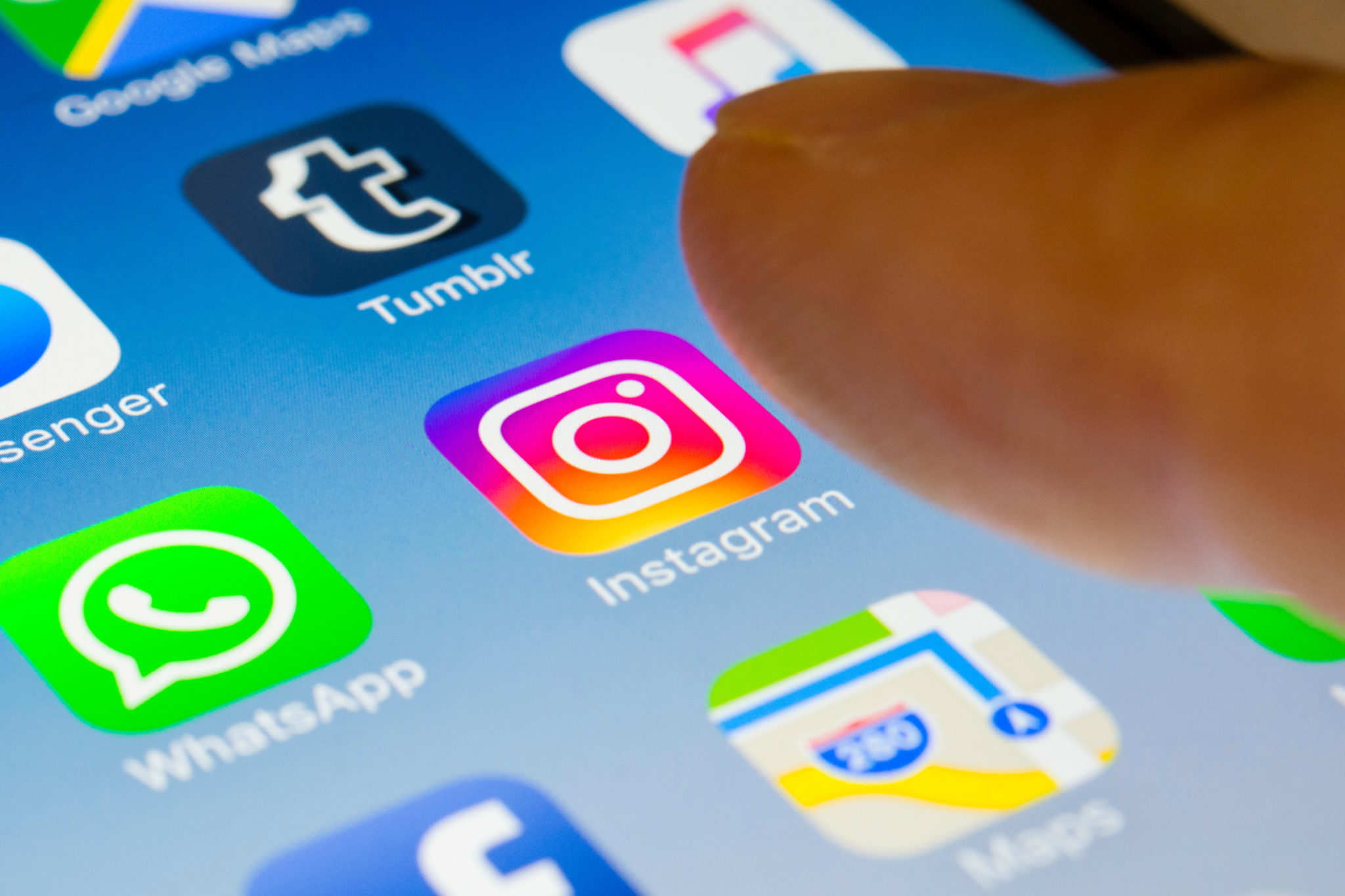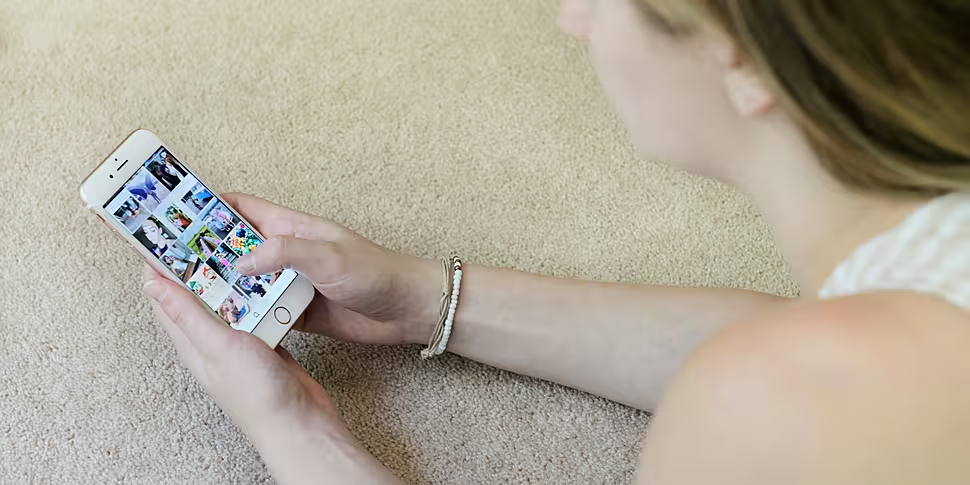People need to manage their exposure to social media and quick flash images showing so-called 'perfect bodies'.
Psychological Society of Ireland President, Dr Anne Kehoe, was speaking as research suggests that just a little exposure to content reflecting unattainable appearance standards - known as appearance-ideal content - is enough to have a negative impact on body image.
Researchers showed 211 women, aged 17 to 28, 10 images or videos selected from the Instagram and TikTok accounts of young female social media influencers that reflected societal appearance ideals.
They then surveyed the participants on several body image measures, using appearance-neutral content, content without people, for comparison.
 The Instagram social media app on iPhone smart phone screen. Image: Iain Masterton / Alamy Stock Photo
The Instagram social media app on iPhone smart phone screen. Image: Iain Masterton / Alamy Stock PhotoThe research found that they compared their own bodies to the women in the appearance-ideal content, judging themselves as less attractive, negatively impacting their mood and increasing body dissatisfaction.
The total exposure time was a minute and a half.
Dr Kehoe told The Pat Kenny Show people tend to only focus on certain details.
"The way social media is presented to us now it is in those short bursts of an image," she said.
"If you think about how quickly we take in the information in that image or content, people are spotting the things that stand out very, very quickly.
"It is surprising... 90 seconds is a very short space of time."
'Focused on beauty'
Dr Kehoe said people's bodies is usually what the content is focusing on.
"A lot of the social media content is very specifically focused on what is the beautiful element of the person presenting," she said.
"Maybe the angle of their body or their skin or some sort of factor about them, there's nothing much else happening in the image.
"So that's where the focus goes."
 Snapchat, Instagram and TikTok apps on an iPhone in January 2021. Picture by: Koshiro K / Alamy Stock Photo
Snapchat, Instagram and TikTok apps on an iPhone in January 2021. Picture by: Koshiro K / Alamy Stock PhotoDr Kehoe said there is a higher percentage of such imagery on social media than elsewhere.
"If you're walking down the street, you are less likely to see as many perfect-imaged bodies or people as you are if you were flicking a very perfect magazine or looking at social media," she said.
"Our eyes don't decipher between that; they just kind of take in the beautiful image.
"So, you're either exposed to lots of beautiful images or you're not; and then that can lead you to believe everybody else must look like this.
"You take it in and it impacts your own image of your own body... or your self-esteem suffers.
"People put pressure on themselves to match up to these things that they're exposed to, which if you didn't have magazines and social media you wouldn't be exposed to.
"The real kind of thing is about managing that."
Using filters
Dr Kehoe said filters can exacerbate these feelings.
"Even if they have a perfectly symmetrical body, filters will make it look even more perfect," she said.
"For some people it's their full-time job to appear beautiful and that doesn't reflect all that well on the rest of us.
"The reality, if you walk in your normal life and look at the people around you, [they] don't look like those images."
Dr Kehoe said there is some movement away from body-centred images.
"There is a lot of movement around, 'What is beautiful?' and how it's really about how someone feels in their body, how confident they feel, their personality," she said.
"There's lots of other elements to be attractive and desired or confident that people can tune into as opposed to just individual physical elements," she added.









